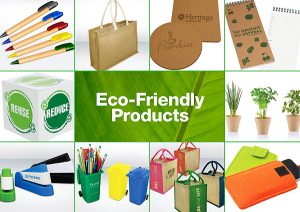
If you are thinking of establishing or moving towards an eco-friendly business, you have to know about bio-degradable products. But what are bio-degradable products? In given conducive conditions, these products tend to degrade or break-down in the presence of microbes such as fungi or bacteria. Thus, decomposing back to its basic components and blending with the earth without releasing toxins. Lately, the earth is turning into a planet of non-decomposable materials such as e-waste, metal, and plastic which has caused serious consequences to the habitation and climatic conditions.
Plastics have become an integral part of societal consumption. It being lightweight, durable, flexible, water and microbial resistant has become inescapably popular. However, excessive use of this nasty polymer has challenged the environmental integrity. Plastic is a by-product of coal, crude oil, cellulose, natural gas, and salt generated using high-energy technologies. The lethal and damaging effect of plastic necessitates its extraction from the environment. And thus, the focus has shifted towards bio-degradable products. Scientific technologies are being used to generate more biodegradable substances that are less hazardous to the environment.
Related Projects:- Biodegradable Products, Recyclable, Disposable, Eco-Friendly Plastics
Using these materials can save the environment and ensure safety from non-biodegradable trash. These substances enable in keeping the earth clean and minimizing pollution. The most effective biodegradable material decomposes faster. Materials such as food scraps, paper, and wood are disintegrated easily relative to steel and other such metallic elements. Also, conditions such as the presence of essential microbes, water, and light play a significant role in facilitating decomposition. Due to which, products that break down in a natural environment or in-home compost may not decay in landfills. Not everything labelled as ‘bio-degradable’ is qualified as a bio-decomposable product. Therefore, to run a green business, safe and effective decomposability along with accurate labelling must be ensured.
In today’s time due to the rising environmental concern across the globe, more awareness has induced the search for environmentally-compatible products. For example, companies like Unilever have made many green investments, making sustainability part of its corporate identity. The Sustainable Living Plan of the company has set targets for procuring, production, and supply chain. The environmental policy was first executed in the year 2010 by CEO Paul Polman to double the company’s business while having an environment-friendly influence in 10 years. More than 3 quarters of Unilever’s non-hazardous waste do not go to landfills. And the share of the agricultural vendors using sustainable practices has multiplied. The Unilever CEO was presented with the Champion of Earth Award in the year 2015 by the United Nations.
Related Books:- Environmentally Friendly, Eco-Friendly Products, Natural Products
IKEA, a renowned Swedish furniture brand, has incorporated sustainability throughout its business operations. Resuming from its supply chain, IKEA buys fifty percent of its wood from sustainable forest suppliers. And 100 percent of its cotton is sourced from the farms that qualify the Better Cotton standards. IKEA’s commitment to environmental sustainability is evident at its stores, which are powered by more than 700000 solar panels.
The towering demand from various industrial sectors such as healthcare, automobiles, retail, agriculture, and packaging have bought bio-plastic in vogue. Bio-plastic is derived from plants and other biological material sources. It is manufactured either by extracting sugar from sugarcane and corn to transform into PLA’s (Polylactic acids). Or it is produced using PHA’s (Polyhydroxyalkanoates) extracted from microbes.
PLA bioplastic is generally deployed for the packaging of food. While PHA plastic is mostly used in medical equipment. According to estimates of a global survey by Nova Institute, manufacturing capacity for bio-plastics would rise to 12 million by the year 2020. And the major investment markets would be Asia and South America as illustrated below:
In the year 2019, the global biodegradable plastic market was worth 1.6 billion dollars. It is forecasted to reach up to 4.2 billion dollars by the year 2027 at a compounded growth rate of 13 percent from 2020 to 2027. Due to sustainability, degradability, and bio-compatibility, bioplastics have become a necessity in several industrial applications. These plastics are integrable under the right conditions or can be naturally recycled through biological processes. As per forecasts, bioplastics will experience expansive growth over the coming years and is an ideal time for investors to look for bio-plastic manufacturers.
Related Video:- Profitable Business Ideas on Biodegradable Products
Many businesses have also switched to eco-packaging to eliminate degradability issues. The packaging alternatives such as paper, cardboard, corn starch, and bagasse paper are being used. As they are harmless to the environment. Several businesses have embraced creative packaging ideas such as eco-pouches prepared from recyclable wood pulp. Tote bags made from canvas too offer a good packaging alternative. These bags are made from jute and vegetable fibers. Many businesses are also opting for Eco-box packaging made from recycled materials. Eco-boxes not only offer protection to the product but also make it appear presentable. The packaging too requires to be accompanied by eco-friendly labels that add a title to the products.
These eco-friendly packaging not only allows businesses to embrace sustainability but also helps build the company’s brand image, goodwill, drives consumer interest, adheres to government policies/initiatives, and offers benefits of cost. Therefore, to bring in the environmental revolution, eco-friendly business is the need of time!
Related Video:- Production of Biodegradable plastic Products
Pr.Pet_Art20